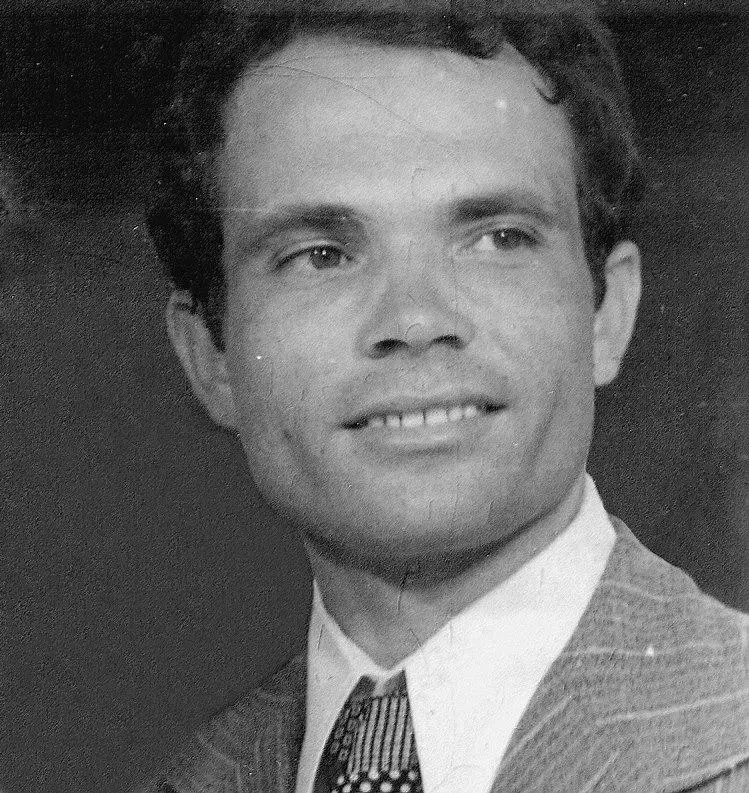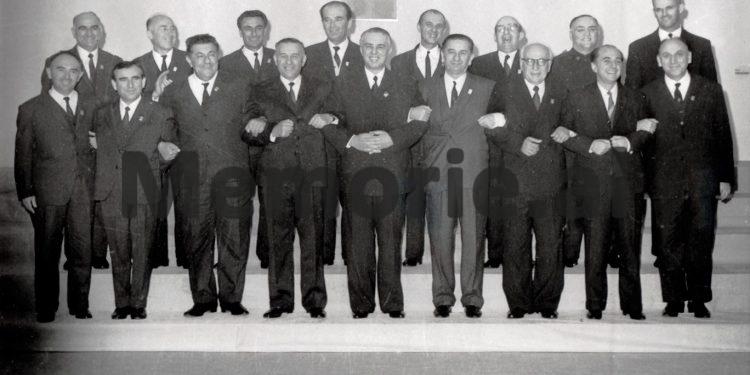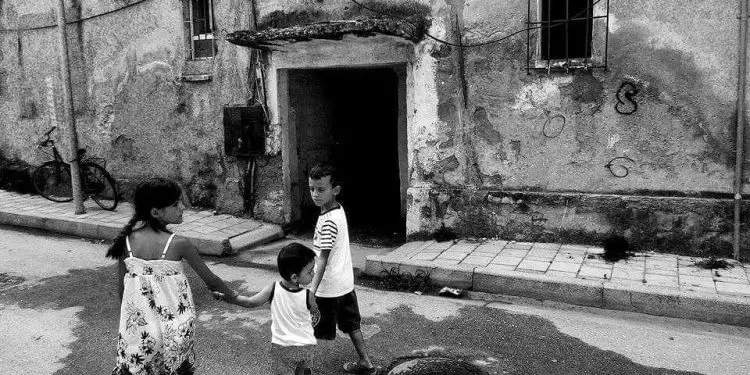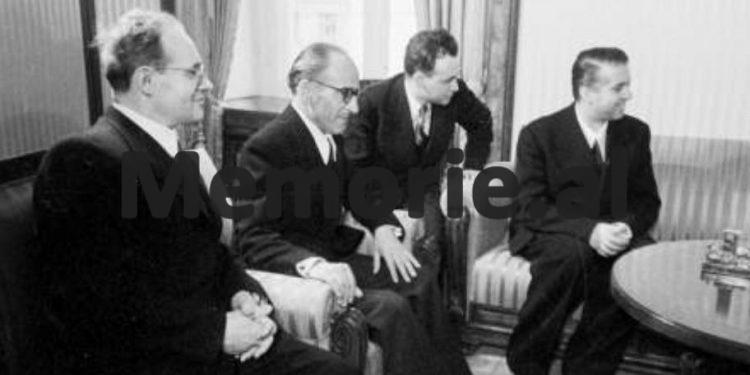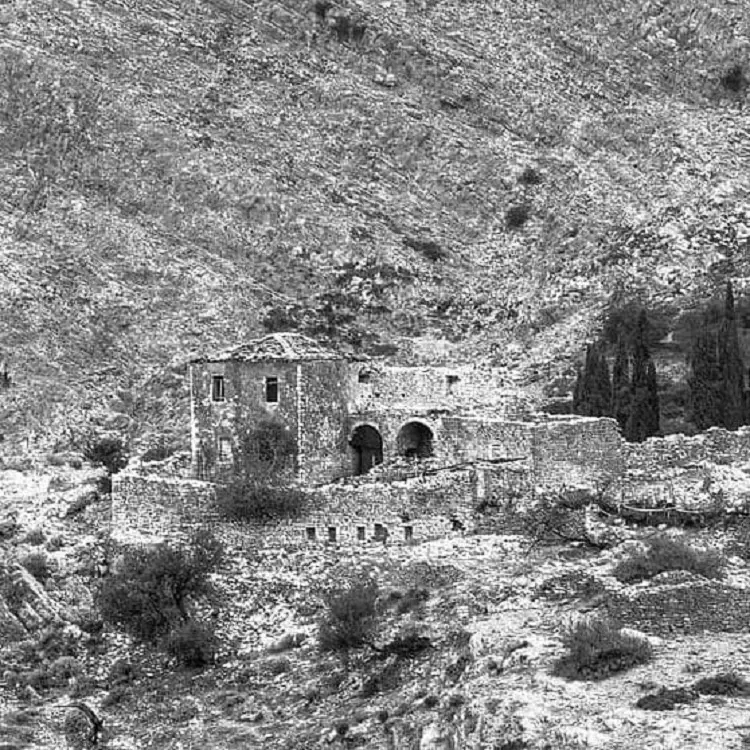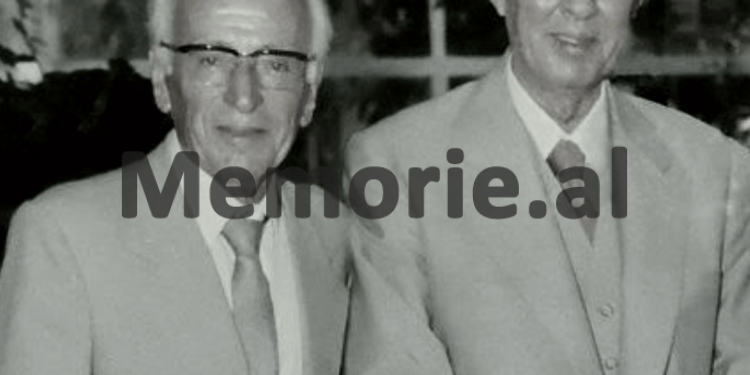By Vasil Qesari
The third part
Memorie.al/ The overthrow of the great totalitarian edifice in Albania would leave behind, not only the change of the system, accompanied by a lot of hopes, mirages and cries of happiness, but, unfortunately, also a lot of wounds, drama, victims, dust, milk and so on lies of all kinds. Ten years and more after that event, which deeply shook society, completely overturning many previous codes, rules and concepts, people still continue to ask themselves such questions as: What really happened in society Albanian, during the last 50 years of the dictatorship? How was it possible that the system managed to warp everything? Why did people accept it? What was the totalitarian logic of the transformation of society and the individual? How were the structures of totalitarian mechanisms conceived and functioning: propaganda, secret police and the exercise of the ideology of terror? How did it happen that among all the communist countries of Eastern Europe, Albania was considered an exception or a special case? Why did Enver Hoxha remain blindly, fanatically loyal to Stalin until the end, turning the country into a prison where violence, fear and purges continued until the end of the 80s? Why was the country so insanely isolated, locking people up between bunkers and barbed wire? Why, then, did all the above phenomena happen…?! The book “Post-scriptum for Dictatorship” does not claim to provide definitive answers to the above questions, or the complexity of the reasons that brought and maintained the totalitarian power in Albania. Nor is it a complete, deep and comprehensive fresco of the life and suffering that people experienced during that system. Its author, perhaps, has the merit that together with the retrospective view of the totalitarian period as well as the zeal of a passionate analyst, he has tried to turn his head back once again, to give not only his personal memories and opinions, but also to return once again to the vision of that era with the simple philosophy of preserving the Memory and supporting the Appeal to never forget the well-known maxim, that…the corpse’s nails and hair continue to grow even after death! Ten years or more after the great revolution, the book in question has current value and we hope it will be appreciated by the reader because, as an Albanian researcher also says… the greatest evil that can happen to a people comes when he fails to analyze his own past. An amnesic people are forced to be constantly neuropathic and repeat their painful experiences…!
Continues from last issue
THE ICON OF A TYRANT
Enver Hoxha, who was truly an extraordinary person, as long as he managed to shed tears in front of the public when he felt the need and on certain occasions. He was crying…! Have you ever seen a communist dictator cry?! Enver Hoxha was a great actor!
Yes! Great actor! But, at the same time, the director and author of a horrific and bloody catastrophe and tragedy, which an entire people would experience to the bone…!
POLYPHONY OF THE 12 BLESSED APOSTLES
… Before it takes the form of a prison, before it turns into a concentration camp, totalitarianism is an idea. It expresses a certain logic and concept of building the world and society. Precisely, the implementation of this concept as well as the awareness of the measures for the fulfillment of the great mission was the duty of the Party.
Yes, what was it in itself, the Party? What were its structures?
What did its senior leaders represent…?
First, it should be noted that the main and indisputable motto of a totalitarian party is:
Absolute power and absolute submission.
But in order to achieve this, the Party, in addition to the ideological platform, must also have its necessary structures as well as a perfect organization and discipline. With much laconism and precision, Stalin describes the structure of the Bolshevik Party like this:
“In the leadership of our Party, there are 3,000 to 4,000 high-level leaders. They constitute, if I may say so, her Majesty. After them come 30 or 40 thousand mid-level cadres. These are, so to speak, the officers of the Party. And finally, we have about 100 – 150 thousand ordinary cadres, who are its mother-officers”.
Even from this partial and fragmentary definition, it is clearly understood that Stalin saw and conceived the Party as a military detachment with structure, formation and military hierarchy. Otherwise, it is no coincidence that the same ideas and messages were conveyed by the Ten Qualities of the APS member, formulated by his loyal student Enver Hoxha, who, among other things, emphasized:
“Our party is an organized detachment and vanguard of the working class. Its revolutionary member is one who is equipped with true revolutionary vigilance, who mercilessly and with the greatest hatred strikes those who are incorrigible and socially dangerous, the enemies of the people and the Party, who is ready for any sacrifice and determined to death, to serve her, who knows how to use the most suitable methods of education, obedience and finally, those of oppression”.
Of course, in their entirety, the qualities of a party member also had other aspects of a propaganda nature, such as, of course, the connection with the masses, knowing and solving their problems, love for the country and the people, etc. But, in reality, behind those slogans, the real face of the Party and totalitarian power was hidden: oppression, violence, punishment, fear, order, military discipline, class war, extermination of enemies, etc.
But, specifically, how was the Stalinist Party of Albania built?
First point, theoretically, at the top of the hierarchy is the former Congress. It was he who, in principle, elected the Central Committee or the antichamber of absolute power. Meanwhile, the heart of the KQ was the Political Bureau with 12 members (Apostles), who were predetermined and put in their posts by the Messiah himself, in complete unity with his friends and circle. The Central Committee of the Party met in plenary sessions, usually once every three months. That was the Regular Mass, where only the Holy Word was heard and applied. Orders and tasks assigned by the first Secretary of the Central Committee:
Le roi soleil! Sun king!
Lord of the Party and power!
As for the Political Bureau, it, fanatically respecting the Stalinist Dogma and Tradition, met once a week, usually on Thursdays. It was also the regular meeting of the Messiah with the 12 Apostles, whose holy words then turned into a hymn and liturgy for all believers, down to the base.
So, in every link of their activity, the Political Bureau and the Secretariat of the Central Committee of the ALP, functioned and implemented with fanaticism down to the smallest details according to the Soviet model. (Remember that the first Political Bureau was created by V.I. Lenin in March 1919, during the 8th Congress of the Bolshevik Party. During the Stalinist era, it consisted mainly of the most loyal and closest friends of Stalin)
Enver Hoxha’s Political Bureau, apart from the old comrades of the ideal, had another distinguishing feature. It constituted almost a family, with many marriage ties, relatives and relatives. Right after the break with the Soviets, in 1961, Radio-Moscow, in one of its broadcasts, denounced exactly those ties, stressing that:
“More than half, or more precisely 53 members of the Central Committee of the ALP, are family related to each other. First of all, it includes 4 couples: Enver Hoxha and his wife, Nexhmijen. Mehmet Shehu with his wife, Fiqreti. Enter Kapo with Vito Kapo and Josif Pashko with his wife, Eleni Tereziu. While the wives of Manush Mufti and Pilo Peristeri is sisters. Kadri Hazbiu is Mehmet Shehu’s cousin’s husband. The brother of Hysni Kapo’s wife is Piro Kondi etc…”!
In the years that followed, the family unity of the Political Bureau would be strengthened even more. The Friends of the Leadership would conduct matchmaking, weddings and weddings only among themselves and within the walls of the Block. (Thus, for example, Ramiz Ali’s granddaughter would marry Enver Hoxha’s son, Ilir, etc., etc.)
(Although, in front of the people, they did not stop talking about steel unity in the ranks of the Party, intrigues, the struggle for power, settlement of accounts and division into clans, were the main features of the Central Committee of the ALP and the Political Bureau. In the iron fist of Enver Hoxha, most of their members ended up in firing squads, in prisons and exiles. Ymer Dishnica, Ramadan Çitaku, Kristo Themelko, Nako Spiru, Koçi Xoxe, Liri Gega, Bedri Spahiu, Kadri Hoxha and later, Tuk Jakova, Liri Belishova, Beqir Balluku, Abdyl Këllezi, Koço Theodhosi, Kiço Ngjela, Kadri Hazbiu, Mehmet Shehu, etc.
The use of the figurative vocabulary “religious” for the ALP is not accidental. In fact, such regimes, (where utopia is mixed with the dictates of “brainwashing”), create atmospheres, conditions and effects similar to those of religions, or rather, try to replace them with their “idols” .
Although, in totalitarian regimes in general, there is no ideological principle or legal provision by which party or state functions can be inherited, this does not mean that the phenomenon does not occur. On the contrary, the children of the rulers, of their family circles and beyond, after they reach adulthood, are destined to enjoy privileges just like their parents. Very quickly and preferentially, their names take place in the lists of the Cadre Offices, for appointing and receiving privileged positions. Here are two or three examples:
Enver Hoxha’s son, Iliri, was appointed director of the Institute of Military Studies, while his son-in-law, Klementi, director of the Design Institute. After the death of Hysni Kapos, his wife, Vitoja, was appointed Minister of Light and Food Industry, while the son-in-law, a former football player, was appointed chairman of the State Sports and Physical Culture Committee. After marrying the daughter of one of the members of the Political Bureau, a young journalist was appointed director of Albanian Television, while the vast majority of the staff of embassies abroad had family ties, direct or indirect, with well-known names of the leadership.
There were hundreds and hundreds of such examples. These happened because the above phenomena were not exceptions, but rules. The sons and daughters of senior leaders never became artisans or workers, but preferred cadres in the apparatus of the Party, the state, central institutions, the diplomatic corps, etc. The upper caste, and especially the members of the Bureau, enjoyed great privileges and led a life of luxury. They traveled in luxury armored “Benz-Mercedes” cars, which were accompanied by the escorts of the Second Directorate, a special sector of the Ministry of Internal Affairs, charged with the task of protecting the leadership.
All their movements outside the capital were accompanied by extraordinary security measures. (While all the State Security forces in the districts received the order of high readiness, for the protection of the leadership from possible acts of terrorism organized by foreign agencies or internal enemies). Meanwhile, in cases of trips to distant provinces, among others, they were also accompanied by ambulances, specialist doctors, vans with food, secretaries, journalists, photo-reporters, etc.
The members of the Bureau and the comrades of the High Leadership, lived in the heart of the capital, in a special ‘Block’ full of villas, which were guarded day and night by soldiers of the Guard and civilians of the Security. Their health was one of the main concerns of the Party. The main comrades should have lived as long as possible to continue the selfless work and sacrifices for the good of the people and socialism.
For that purpose, next to the ‘Block’, the Leadership Clinic was established and operated. There, they were subjected to visits for regular medical tests, under observation of modern devices and specialized doctors abroad. Even in everyday life, they enjoyed without limit the benefits and abundance of the socialist society. Each family had its own cook, waiter and maid, who depended on the Leadership Supply company. It was she who provided for them, not only many kinds of quality food, vegetables and fruits, but also electrical and household appliances, cosmetics, clothes, items and articles of wide use, etc., which were imported with foreign currency from Western countries.
(Where power is in the hands and fists of people or a single individual, privileges are born and flourish, sometimes even against their will. On the other hand, it is more than normal for power itself to tolerate and encourage them”). (Primo Levi “Les naufragés et les rescapés”). The caste of leadership (where, in addition to the members of the Political Bureau, the heads of the Government and the members of the CQ, the first secretaries and the heads of the Executive Committees in the districts also participated etc.), it was also called high nomenclature). While V.I. Lenin was called the “father” of the Bolshevik Revolution, J. Stalin was called the “inventor” of nomenclature. According to the Soviet bureaucratic dictionary, the term “nomenclature” had two meanings: a ) it contained the list of senior leadership positions and b) the list of people appointed or reserved for those positions. “Pashallar e quq” – this was the title of the poem written by Ismail Kadare in 1973. Its text was censored and was severely criticized it is currently considered lost. However, it is known that its content stigmatized the life, parties and orgies of some of the top party and military leaders of the time, such as B. Balluku, P. Dume, etc.).
The Politburo led a happy life. Its members spent their vacations in villas built around the country. Of course, in the most picturesque areas, such as in Dajt, Durrës, Pogradec, Korçë, Saranda, Dhërmi, etc. In Vlora, the whole area around Cold Water was full of villas, which, in the official dictionary, were also called Party Houses. They were protected by many soldiers and civilians, who watched not only around them but also in the suburbs, behind the fences, through the trees, bushes and up to the top of Shashica Mountain. Even though they were classified as Party property, the villas had names such as, for example: Comrade Enver’s villa, Comrade Mehmet’s villa, Comrade Hysni’s villa, etc.
Their interiors were luxurious. Various equipment, starting from electric switches, lampshades, showers, toilets, bathrooms to electronic devices, heating and air conditioning systems, pumps and swimming pool filters, were imported from abroad. The fountains, gardens, flower gardens and squares around them were full of palm trees, ornamental shrubs and rare flowers. Amplifiers of foreign television stations were installed near the villas to inform the friends about the events happening in the world. (Meanwhile, their pursuit by ordinary people was not only strictly prohibited, but also with serious consequences).
Of course, inside the Houses of the Party, life was completely different from that of the houses of the people, who lived in misery, complete poverty and with rationed food which they managed to obtain by keeping long queues and which constituted the vital minimum human. In them there were many kitchens, cooks, pastry chefs and waiters who cooked and served rich and special menus. After the bread, they served cakes, special ice cream, carbonated water and full-flavored coffee, accompanied by amarettes and chocolates, which ordinary people could only see in foreign television commercials.
One of the veterans of the Political Bureau, Spiro Koleka, had his villa in Dhërmi. Built by the sea and on the rocks, surrounded by palm trees and fountains, it was a forbidden area for every vacationer of the Workers’ Camp, which was located nearby. In addition to sons and daughters-in-law, grandsons and granddaughters, the lifelong member of the Party’s highest forum took with him a suite of companions. He stayed in his paradise all through the summer months. He spent his days on the beach, basking in the rays of the Mediterranean sun or in the shade of dry fern tents, while his nights were fishing deep in the fresh waters of the Ionian…!
Sometimes, friend Spiro broke the rule of his absolute vacations, went up to his native village, Vuno. Once, I happened to be there for the making of a television documentary. Comrade Spiro came from the Dhërmi villa and got off his “Benz-Mercedes” in the center of the village. After meeting the ruling Party cadres in the district, he was directed by a group of villager’s playing cards, sitting around a millstone. He greeted them and extended his hand. None of the men stood up, but they answered him coldly without paying attention.
The reason for that attitude was that no one respected Comrade Spiro, not even in his native village and no longer on the coast.
Not only the majority of his fellow villagers, but also the coastal people in general, despised his arrogance, his ambitious character and his diligent role in the implementation of the class war, which had had devastating consequences in that province. But, there were also those who did not respect him simply for personal reasons or because, throughout his political career, he had done nothing, not for the coast but also for Vunoi, who’s few inhabitants, managed to survive only thanks to the bounty of nature and their exhausting work.
I remember that, on another occasion, I witnessed a spontaneous meeting of his with the old women of Vunoi. Among other things, they complained to him that the village store was very rarely supplied and that you couldn’t even find soap to wash clothes. The member of the Bureau, Spiro Koleka, angered by the women’s claims, did not prolong it, but answered bluntly: If you didn’t have soap, it wouldn’t be the end of the world! Do as our mothers did! You wash your clothes with finji!
(Finja washing – a way of washing clothes used in the past on the coast of Himara, in the absence of soap. It consisted of using hearth ash, which was collected by housewives in a basket and then placed in the boiling water of the kettle the liquid that came out of it was a type of caustic soda with weak washing properties). Memorie.al
The next issue follows




